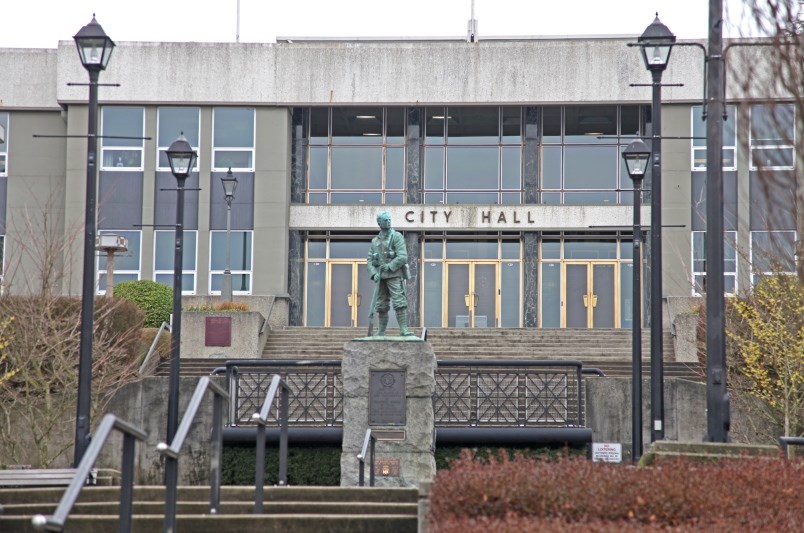The COVID-19 crisis is putting a damper on the city’s ambitious plans to tackle climate change and build a new pool and community centre – but the bright spot for New Westminster taxpayers will likely be a lower-than-anticipated property tax increase.
New Westminster city council met Monday, March 23 to discuss the city’s response to the pandemic, and among the items on the table was the city’s 2020 budget.
Council had previously been eyeing an increase in the neighbourhood of 4.9 per cent. On Monday, councillors voted in favour of a budget that will see an estimated tax increase of 3.1%, plus a 1% emergency fund.
The emergency fund replaces what had been planned as a “capital levy,” a special fund created in 2018 to help the city fund major capital projects. This year’s levy, estimated at $2.2 million, was to be allocated towards the replacement of Canada Games Pool and Centennial Community Centre.
Instead, it will be earmarked for the city’s response to the COVID-19 pandemic.
Coun. Patrick Johnstone suggested council should keep the capital levy intact but didn’t receive a seconder for a motion to that effect. Coun. Chinu Das then suggested the city take the 1% and divide it in half, with half earmarked for the capital levy and half for emergency funds.
Other councillors, however, said the city should adopt the emergency fund suggestion.
Coun. Jaimie McEvoy said the city needs to assume that it could be facing large costs related to the pandemic. He acknowledged the city has massive capital funding needs and noted projects that are delayed only get more expensive with time, but he said the city doesn’t have a choice.
“We’re in blind territory here,” he said. “We need to be prepared. That’s the slogan I learned when I was in Scouts, and it applies here.”
The proposed budget changes would remove most of the “enhancements” from the city’s proposed 2020 operating budget – previously, the document included nearly 90 items in the 2020 and 2021 general budget for initiatives related to such projects as climate change, diversity and inclusion, and arts. Colleen Ponzini, the city’s previous director of finance, had called that budget “aggressive and exciting.”
On Monday, however, that all changed, as city staff proposed removing most of those enhancements – leaving intact only those new positions that had already been filled, necessary contractual agreements and any projects already put in place, as well as funds to cover anticipated changes in unionized employees’ collective agreements.
Coun. Nadine Nakagawa expressed regret that the new, leaner city budget won’t allow them to carry out all the work the city had decided to do towards its climate action plan.
“I’m really aware that the climate crisis hasn’t disappeared in all this,” she said, but she said the city will return to that priority in the future.
“We need to do what we have to do to keep people housed and well right now,” she said.
Nakagawa said the city needs to have funds on hand to be able to properly respond to the pandemic, noting the city is trying to keep tax increases minimal for residents.
"What this epidemic has caused us to understand is that vulnerable people in our community make us all vulnerable,” she said.
Mayor Jonathan Cote acknowledged that climate action and the pool replacement projects are still priorities for the city but said that, given everything, they will have to take a back seat for the moment.
In the event that the emergency fund is not needed, councillors agreed any unspent funds should again be directed towards capital projects.
The council vote provides direction to staff for continued work on the city’s 2020 to 2024 financial plan. That document must receive final approval by May 15.
“



